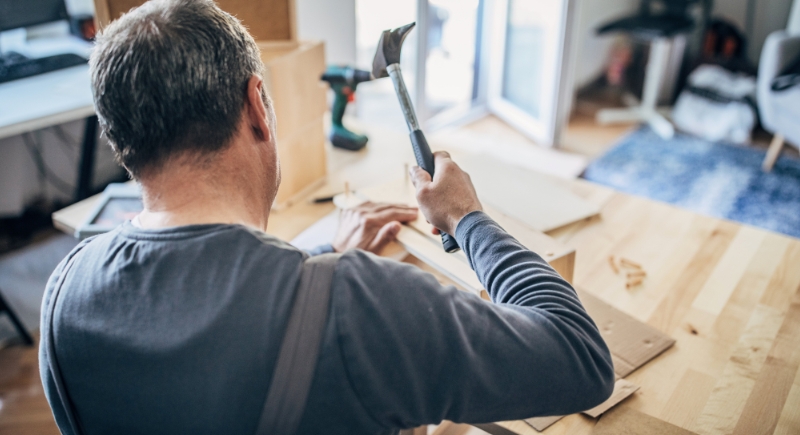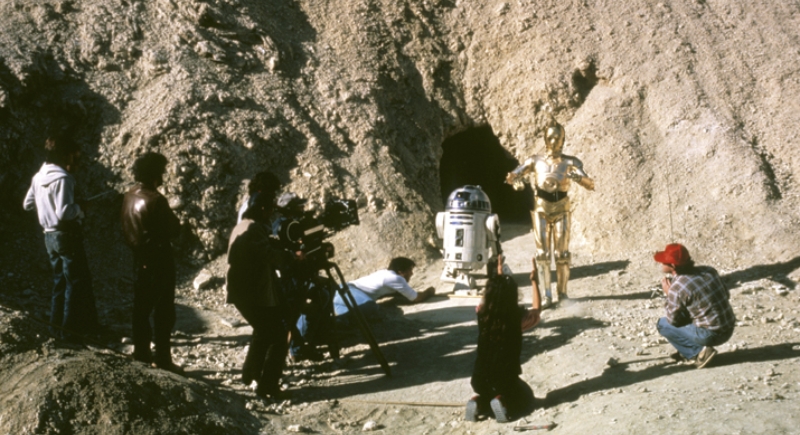Harrison Ford Was Just a Regular Carpenter Before ‘Star Wars’
Before he became a household name, Harrison Ford spent his days doing construction jobs and building furniture to pay the bills. He didn’t have the luxury of waiting around for a breakout role, so he developed a trade to support his family. His early roles didn’t offer steady work or reliable income, which forced him to think practically. He taught himself carpentry, found work through Hollywood connections, and slowly built a reputation.
Ford Learned Carpentry Out Of Necessity, Not Ambition

Image via iStockphoto/Hirurg
In the 1960s and early 1970s, Ford’s acting career stalled. He took minor roles in TV series like Gunsmoke and Ironside, but those appearances paid very little. With a wife and two young sons, he needed a stable income, so he turned to woodworking as a means to support his family. He didn’t attend trade school or train under a professional.
Instead, he went to the local library, borrowed books on woodworking, and began to teach himself the craft. He practiced and studied until he was able to handle professional jobs. It wasn’t a passion project, but a matter of survival. Ford built his skills in the same way he hoped to build his acting career: quietly, deliberately, and with discipline.
This second path gave him breathing room. He no longer had to rely on low-paying roles or take every acting offer. The trade gave him control, and that control allowed him to pay attention to improving his craft without the pressure of immediate financial return.
His Work Took Him into Hollywood Homes Before He Returned to Its Sets
Once Ford became confident in his abilities, he started taking gigs around Los Angeles. His work caught the attention of people in the film industry, not through publicity, but through word of mouth. He built a home office for author Joan Didion and designed a recording studio for musician Sergio Mendes. Director Francis Ford Coppola also hired him for various projects. Ford gained a reputation as dependable and highly skilled.
His projects were clean, detailed, and finished on time. These weren’t casual favors for friends. Rather, he was hired because he delivered. Working in those homes put him back in the same world that had pushed him out. Instead of auditioning for directors, he was working in their houses and studios. These assignments didn’t reignite his film work directly, but they kept him connected to the industry.
He remained a familiar face—just not in front of the camera. That would change with one particularly well-timed carpentry job.
His Break Came During a Routine Carpentry Job At Lucasfilm

Image via Wikimedia Commons/National Park Service
George Lucas was casting for Star Wars and didn’t want to reuse actors from American Graffiti, where Ford had played a supporting role. At the same time, casting director Fred Roos needed a door built at the offices of American Zoetrope, and he brought in Ford to do the work.
During casting sessions, Lucas asked Ford to help read lines with auditioning actors. It wasn’t meant to be a screen test, but Ford’s dry delivery stood out. Lucas saw something in his presence that hadn’t been visible during their previous collaboration.
That convinced Lucas to give him a closer look. Other actors like Kurt Russell and Christopher Walken were seriously considered, but Ford’s understated confidence felt right for Han Solo.
The result was a performance that connected with audiences without trying to charm or impress. He brought something real to it, and people noticed.